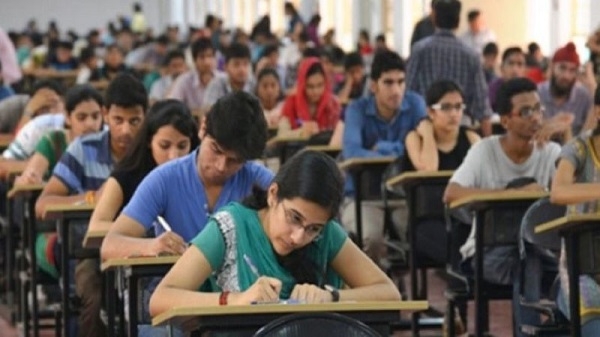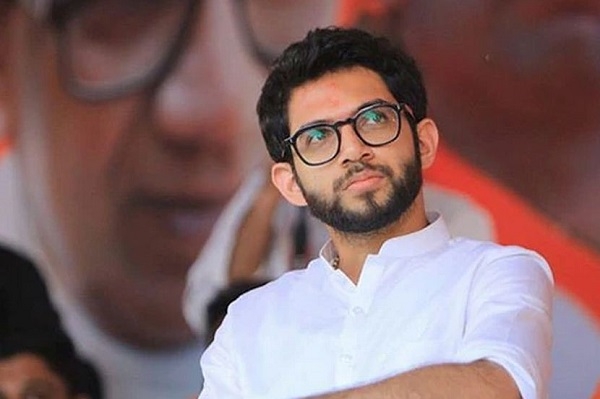Internal Assessment: The COVID Alternative to Final Year Exams
16 Jul 2020 18:37:49
It is easy to make good decisions when there are no bad options. It is inevitable though, those bad decisions are made when there are no good options. As we face a never-before kind of a “Lockdown” situation in almost all parts of the world, India grapples with its adverse effects in nearly every avenue of public and professional life. Academia too hasn’t managed to scrape or escape through the pandemic paranoia.

Schools and Universities in several states of India have already canceled exams and promoted students to the next levels for the primary or intermediatory classes. But, when it comes to the final year exams that are often marked as the most decisive ones in a student’s academic career, most of the states have chosen to reorganize their academic curriculum and cancel final-year college exams. Not exams, but rather internal assessments and other evaluation mechanisms are advocated to be put in action to award degrees to students.
However, claiming to safeguard the educational interests of a large number of students, the UGC has issued a guideline to conduct all the examinations of the terminal semester by September 30, 2020. This poses a challenge or a problem for several states which have already announced the cancellation of degree exams and brings them at loggerheads with the UGC
States Oppose the UGC Guideline
Manish Sisodia – Education Minister for Delhi has canceled degree examinations in state-run universities. For him, saving the future of the students is far more important than saving an academic year amidst the pandemic. Delhi, which is the country’s biggest coronavirus hotspot has become precarious for the public –students included. Along with Delhi Chief Minister Arvind Kejriwal, the Chief Minister of West Bengal – Mamata Banerjee and that of Punjab – Captain Amrinder Singh have sought Prime Minister Modi’s intervention to revoke the new guideline and reiterate the guidelines passed on 29th April 2020 that are just advisory in nature and not mandatory on the states to conduct the exams. Similar demands have come forth from the states of Tamil Nadu, Odisha and Maharashtra too. Maharashtra CM Uddhav Thackeray too has urged PM Modi to instruct UGC to endorse the state's decision on cancellation of these examinations. “Why did we not have exams when we had only 600 cases of infection in March; why are we doing it now when we have around 7 lakh cases”, asks Aditya Thackeray – the Shiv Sena Youth Wing Leader and Maharashtra Cabinet Minister for Tourism and Environment.

While many states continue to express their agitation against the newly issued UGC guidelines, the states of Kerala, Karnataka and Himachal Pradesh on the other hand have complied with the same and are scheduling the final year exams in September.
Why Taking Exams Is Not Feasible?
While the statement made by Education Minister Ramesh Pokhriyal 'Nishank’ has to be agreed upon that “the University exams are essential to reflect students' potential, performance, and reliability which is essential for acceptance in global programs”, one cannot but object to their imposition for several reasons. Most of the schools and colleges in many states have been converted into quarantine centers. Isn’t asking the students and invigilators to attend the exams in one of these is like exposing them directly to the disease and hazardous to their health? Life is more important than any exam ever. Is it not the integrity of examinations that is put in question along with the welfare of students – the next generation of new India? How do continual postponement and unsure dates serve the purpose of valuing the exam system? - Questions a group of 30 noted academics headed by former University Grants Commission chairperson Sukhadeo Thorat himself. Instead, isn’t waving off the exams like putting an end to the extended uncertainty?
The UGC guidelines speak of taking the exams online or offline or in a blended manner of both. Would these be feasible in the areas with poor internet connectivity? Would all students including those from the lower strata afford internet in the first place? With online examinations considered as an option, will a few students with the advantage of better resources at home, not take advantage of the same and cheat? What thoughts have been given to the collection of examination papers and their checking from various centers? Won’t the paper handling by various hands not pose a threat of straight-forward or asymptomatic carrying of the “unseen” virus? On the other hand, for many students, the grades are directly linked to their ideas of wellbeing and efficacy. Can the pandemic and COVID-19 situation ensure the “right” examination environment conducive for the student to perform “normal” in the examinations?
What will be the cost of running these examinations, if at all, by following the norms of social distancing (more centers will be needed and thus more invigilators, more guards, more infrastructural facilities all incurring to greater costs)? Isn’t it more logical to spend those costs on other immediate and urgent activities of student’s health welfare?
What Can Be The Alternative?
For most of the developed countries across the world - students, their well-being and their progression in future stages of life is an extraordinary pandemic. Countries like USA and UK have already canceled their important examinations for the current academic year.
India too should take this opportunity to develop a new system as a legacy of this pandemic. Either we abandon the exam system for the year and award no qualifications. Or, have them taken later in the year at an unspecified time. Let the students appear at a deferred time even if it is one year, as then we do not compromise with the integrity of the exam system. Or, then come up with some other system say like teacher’s grading. The third however does not guarantee unbiased results. Analysis however has proved Teacher Assessments to be close enough to real results. It can be mixed with the marks of internal assessments based on assignments, class tests, projects, etc taken throughout the year.
The end of the year exam is the only way of ascertaining capability. Why not use a predicted grade or cumulative assessment record given by schools, colleges or universities. With the COVID pandemic, most of the schools have been shut for almost 4 to 5 months with haphazard models of online learning. Is this learning enough to gain actual knowledge? If the learning has not been proper, how can it be evaluated formally? We should follow the example of the Indian Institute of Technology and the National Law University and give degrees to their students on the basis of internal assessment.
We need a system that offers maximum certainty for students about how grades will be awarded; minimum bureaucracy and burden in generating these; and maximum reliability and disaggregation between students’ achievement. Can the current scenario ensure this? If not, we need to certainly cancel the examinations as demanded by states and statesmen.
Conclusion
Difficult times sometimes compel us to take desperate measures. In India, exams are probably the only marker of education. Where does that leave knowledge and learning? How can we risk young lives for an assessment? The current situation is far from normal. Universities need to swivel away from the norm and take drastic measures. Measures like canceling exams.
The UGC says that awarding degrees without exams will put student’s futures at stake. Does that allow putting student’s present at stake then? Why not chaff the norms and actually focus on learning.
As we stated in the beginning, It is easy to make good decisions when there are no bad options. It is inevitable though, those bad decisions are made when there are no good options. Ordinary situations have mundane solutions, extraordinary is challenging. We need to take a stand. We need to challenge the inevitable.
